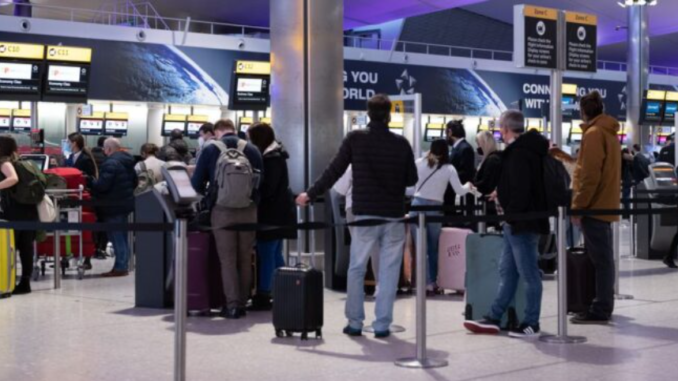
The United Kingdom has banned all travel corridors, effective from 4am on Monday.
Prime Minister Boris Johnson, who announced the development on Friday, said the decision was taken to prevent cases of new variants of COVID-19 in the country.
Travellers from all countries must submit proof of a negative COVID-19 test taken 72 hours before departing for the UK.
They have also been mandated to quarantine for 10 days, with the option of doing an extra test on day five to shorten the isolation period.
Countries on the travel corridor are those from which travellers can enter the UK without observing quarantine upon arrival.
Countries on the list were exempted from the two-week quarantine in the UK, which has since been reduced to 10 days.
The countries are Japan, Ireland, Malaysia, New Zealand, Qatar, Saudi Arabia, Rwanda, The Maldives, Barbados, Cuba and Gibraltar.
However, with the new travel restrictions, all countries have now been removed from the corridor list.
“To protect us against the risk of as yet unidentified new strains we will also close all travel corridors from 4am on Monday,” Johnson said.
“It’s precisely because we have the hope of that vaccine and the risk of new strains coming from overseas that we must take additional steps now to stop those strains from entering the country.
“Yesterday we announced that we’re banning flights from South America and Portugal and to protect us against the risk from as-yet-unidentified strains we will also temporarily close all travel corridors from 0400 on Monday.
“If you come to this country you must have proof of negative covid tests that you have taken in 72hrs before leaving and you must have filled in passenger locator form and airline will ask for proof of both.
“Upon arrival you must quarantine for 10 days not leaving for any reason, or take a test on day 5 and wait for proof of negative result.
“At this crucial stage what we can’t have is new variants with unknown qualities coming in from abroad and that’s why we’ve set up the system to stop arrivals from places where there are new variants of concern and set up the extra tough measures that I’ve outlined.”
Anyone caught breaking the rules faces up to £500 fine.
END

Be the first to comment